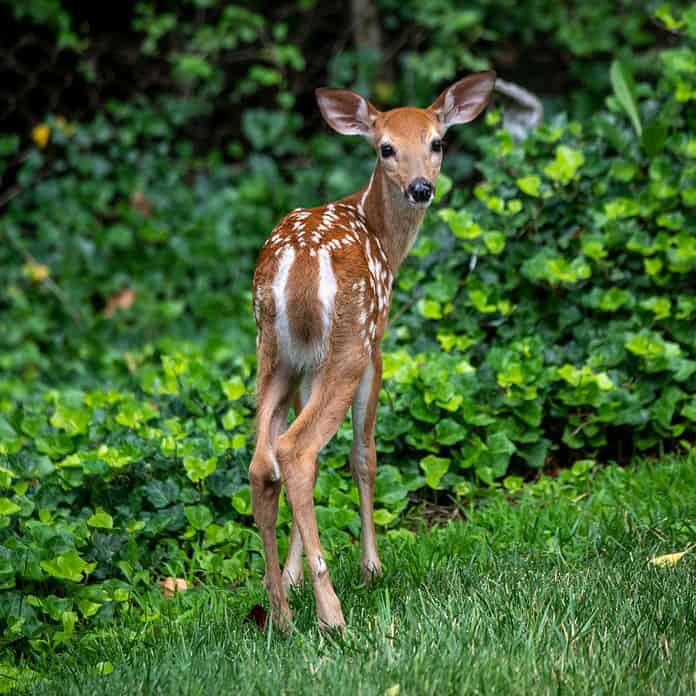Every year, during this time of the year, wildlife rescues, our Florida Wildlife Commission, and even I, receive emails and phone calls concerning lost or abandoned fawns. It’s really frustrating, because in too many of those calls, the person has already picked up the fawn and is taking it home to, “help” it. Ninety percent, or more, of the time, that fawn is perfectly fine. Just this year, I’m aware of a half dozen local fawns that were unintentionally abducted from the wilds. We’re in the midst of fawning season and please, keep an eye out for them, but keep your hands off of them.
Ya see, there is a very strong probability that you did not find an abandoned fawn. Does hide their newborn fawns in tall grass or brush and move some distance away while they feed so as to avoid drawing predators to their babies. With the high concentration of deer in suburban Hernando County, sometimes this happens right in our own yards. The fawn is simply waiting until its mother returns. Soon as the fawns grow strong enough to follow the does and run from predators, and they’ll no longer need to be left alone by their mom. What I recommend is to wait a few hours and then return to the spot, if the fawn remains and shows signs of dehydration (sunken eyes, curled ears) then step in and give it aid.
I know, it seems that they are vulnerable, but these young fawns are not totally helpless. Their spotted hides look like dappled sunlight on the forest floor offering pretty good camouflage. They have yet to develop a strong scent that could attract predators either. And, fawns are programmed from birth, to keep totally still once their mother beds them down to go feed. The combination of the physical attributes and the behavior of both does and fawns are remarkably successful at keeping the little guys safe; until some well-intended person picks it up.
There are obviously situations where it is okay to help lone fawns. If you notice that a fawn is clearly injured, difficult rising, flies or ants are crawling on it, it’s showing signs of dehydration or, that it’s near a dead adult doe along the roadside…. then it’s acceptable to step in to help.
Start by calling your local animal control department or local offices of our Florida Wildlife Commission; either should be able to put you into contact with a licensed rehab facility nearby. Now, it’s not a system of finders keepers either; it truly is illegal to possess that fawn without a permit to do so from the FWC. So, bear that in mind and do what you feel to be the right thing. As always, I’d love to hear from you if you have any questions or comments about this week’s column or just would like to share a story of your own, at [email protected]. God Bless, and good hunting!

